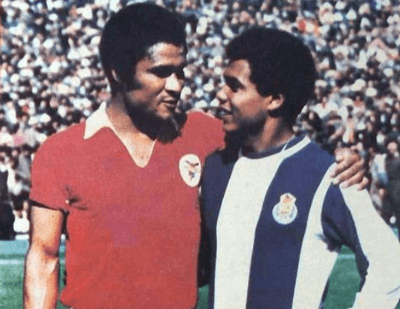
Eusebio Benfica player and Teofilo Cubillas Porto player
Anyone who is not an expert on Portuguese football will wonder why we have chosen Benfica and Porto for this article. So to understand, the first thing we are going to do is to show you the facts.
The four Portuguese clubs with the most official titles are: Benfica, Porto, Sporting and Boavista.
SL Benfica, has won among the most important titles 38 league championships, 26 Portuguese Cups and 2 Champions League former European Cup (1961 and 1962).
FC Porto, has won 30 league championships, 20 Portuguese Cups and 2 Champions League (1987 and 2004), 2 Intercontinental Cups (1987 and 2004), 2 Europa League (2003 and 2011), 1 European Super Cup (1987) and 1 European Super Cup (1987).
Overall, we can say that Benfica is the club with the biggest following in Portugal and also the one that has accumulated the most titles throughout history. Its incredible number of members, its media presence, its marketing strategy make it the strongest football brand in Portugal..
However, if we look at sporting success over the last 30 years, Porto has been the most dominant club. At the international level, Porto also surpasses its Portuguese rivals in trophies, having achieved great European conquests that have consolidated its reputation outside Portugal.
Not to be forgotten as one of the Big 3 is Lisbon-based Sporting de Portugal, which has 20 league championships, 17 Portuguese Cups and 1 European Cup Winners' Cup. In addition, in the last four years they have won the Primeira Liga in 2022-24 and also in 2020-21.
Behind and far behind the big three is Boavista FC also from the city of Porto: they have won 1 league championship (2001) and 5 Portuguese Cups.
Knowing the prominence and historical success of these clubs in Portuguese football, let's take a closer look at the 2 big clubs in Portugal, their rivalry and their jerseys..
RIVALRY PORTO VS BENFICA
The rivalry between FC Porto and Benfica is one of the most intense and passionate in European football, reflecting not only sporting competitiveness, but also the identity and values of each club. As we have seen, over the years both teams have forged a history rich in titles, legendary players and great moments that have given them a strong fan base.
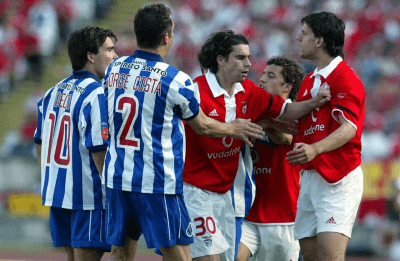
Rivalry Porto vs Benfica
The match in which they measure their rivalry and prestige is called ‘O Clássico’, the Classic. The beginning of these matches can be dated back to 1912. And as in all football rivalries, the geography, the economic relations of the cities of each club, their indiosyncrasy, influence this intense relationship. In the case of these clubs, their competition between the teams is closely related to the rivalry between the two most important cities in Portugal, Lisbon and Porto.
The name ‘O Clássico’ also applies not only to matches in the league championship, but also to matches in any other competition.
Here are some facts about these clashes:
Championship Primeira Liga - official meetings between Porto and Benfica since 1934 :
Benfica: 60 wins
Porto: 72 wins
Draws: 49
Portuguese Cup ,Taça de Portugal - official meetings between Benfica and Porto since 1939 :
Benfica: 21 matches won
Porto: 11 matches won
Draws: 5
As we shall see below, while Benfica have been a symbol of tradition and success in Portugal, Porto have demonstrated their dominance and consistency, especially in the late 20th and 21st century. The jerseys of both clubs are emblematic of their respective histories, carrying with them the essence of decades of glory and rivalry. Ultimately, this duel remains one of the biggest attractions for Portuguese and international football fans.
What would football be without such intense relationships?
Let's take a look at the history of these two great Portuguese clubs..
SPORT LISBOA E BENFICA - SL BENFICA
Sport Lisboa e Benfica, commonly known as Benfica, was founded in 1904 as Grupo Sport Lisboa, the club was born from the initiative of a group of young sports enthusiasts in the Belém district of Lisbon. Its aim was to promote football and other sporting activities in the Portuguese capital.
Due to financial difficulties, Grupo Sport Lisboa eventually merged in 1908 with the cycling team Grupo Sport Benfica, founded in 1906. This merger gave birth to the club's definitive name, Sport Lisboa e Benfica, and a bicycle wheel was incorporated into its emblem, a symbol that still remains today..
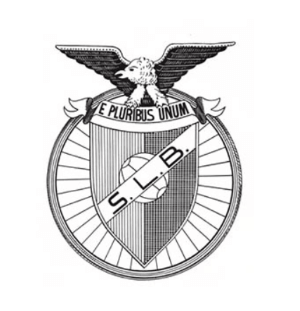
Benfica's 1908 crest
From its beginnings, Benfica has been characterised as a popular club, called ‘O clube do povo’, the club of the people, attracting supporters from various social classes and fostering an identity based on values such as solidarity and community spirit. It is one of the clubs with the largest membership base in the world, in fact in 2006 it was the club with the largest membership in the world! It currently has around 290,000 members.
Throughout its history, Benfica has experienced periods of great success. The 1960s and 1970s were particularly fruitful, with Benfica winning many national and international titles. The team with Hungarian coach Béla Guttmann in charge won the European Cup on two consecutive occasions, in 1961 and 1962, establishing itself as a power in European football with the great Eusébio, considered one of the greatest footballers of all time. However, after the departure of coach Béla Guttmann in 1962, who allegedly cast a curse saying that Benfica would never win a European final without him, the club has failed to win another European Cup, losing 5 Champions League finals (the last one in 1990) and 3 Europa League finals (the last one in 2014) which has fuelled the legend of the ‘curse of Béla Guttmann’.
Domestically, Benfica have dominated Portuguese football, racking up numerous Primeira Liga titles, Portuguese Cups and Super Cups. This success has been made possible by the contribution of legendary players such as Eusébio, José Águas, Mário Coluna, Tamagnini Nené, Rui Costa and more recently, the likes of Nuno Gomes and Di Maria.
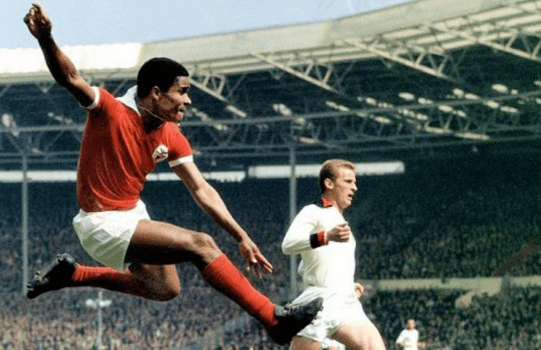
Eusebio at Benfica
The club plays at the Estádio da Luz, officially Estádio do Sport Lisboa e Benfica, which seats around 64,000 spectators. Opened in 2003 to replace the old stadium that had been created in 1954, it is a UEFA category four venue and has hosted major events such as the Euro 2004 final and two Champions League finals. In 2014 it was voted the most beautiful stadium in Europe in a poll by L'Équipe.
Benfica's uniform is easily recognisable by its red shirt and white shorts and red socks. The club crest features an eagle - which has earned the nickname ‘Águias’ (Eagles) - on a bicycle wheel - we have already explained above where the bicycle wheel comes from - symbolising nobility and speed, respectively, reflecting the values and identity of the team.
Here are some of the team's shirts::
SL Benfica 1962-63 retro shirt Benfica classic shirt 1962-63 This shirt is a replica of the one worn among others by Eusebio. He had arrived at the club in the season in May 1961 but his first official match took place in June 1961. It was in the 1961-62 season that he gained the recognition that would never leave him. In that year's European Cup final against Real Madrid, he scored 2 goals in a final score of 5-3 in favour of Benfica. Already that year he was awarded second place in the Ballon d'Or. Also in this season were Mário Coluna and José Águas, two greats of the Águias team. In this season the team won the Primeira Liga..
SL Benfica 1962 - 63 Eusebio retro shirt
Benfica 1992-93 vintage football shirt In the 1992-93 season the team won the Taça de Portugal (Portuguese Cup) with a 5-2 win over Boavista. In this season João Pinto and Hélder joined the club, as well as Paulo Futre after playing for Atlético de Madrid, forming a team of great players. Also in this season Bento, the great goalkeeper, retired. It was also the year that Toni, António José da Conceição Oliveira, took over again as coach..
SL Benfica 1992-93 vintage football shirt
SL Benfica 1994-95 football shirt This shirt with the Parmalat logo represents a period of renewal for the club after winning the league the previous season. Players such as Caniggia and Edilson joined the club. In the Champions League they finished top of the group in the first round and although they reached the quarter-finals, they were ousted from the championship by Milan.
SL Benfica 1994-95 football shirt
SL Benfica Casual Socks Box Set We also leave you a link to the socks that commemorate emblematic moments of Benfica, we know that football starts with the feet!
FUTEBOL CLUBE DO PORTO - FC PORTO
FC Porto, one of Portugal's most important clubs, was founded in 1893 by António Nicolau de Almeida, a wine merchant who discovered football in England and decided to introduce it to his country. However, the team went through a period of inactivity until, in 1906, José Monteiro da Costa sparked its revival and brought it back into the competition. For a long time, 1906 was considered to be the year of its foundation, but it is now officially recognised that its beginnings date back to 1893.
Porto is distinguished by its competitive spirit and its ability to reinvent itself over the years. Although in its early decades it faced challenges to establish itself on the national football scene, the club began to stand out as early as the 1930s by winning what is now the Portuguese Primeira Liga. The 1940s were difficult, yet they beat Arsenal in London in 1948 and in the 1950s they slowly began to establish a solid base for future success, building the Antas Stadium and winning the double in 1956. The 1960s, however, saw Benfica shine with their European titles..
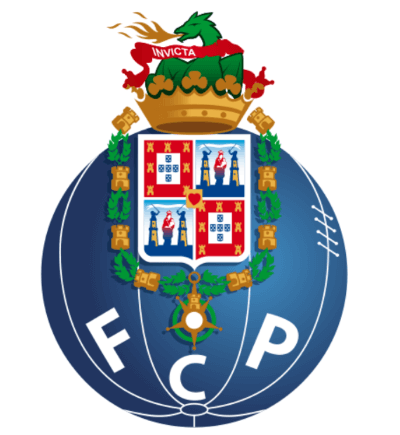
FC Porto crest
FC Porto's golden era in the 20th century was between the mid-1980s and the late 1990s. During this period, the club won its first European Cup in 1987, beating Bayern Munich. In addition, in 1987, Porto won the UEFA Super Cup and the Intercontinental Cup, consolidating their presence on the international stage. Domestically, they won multiple Primeira Liga titles, including a record five consecutive championships between 1995 and 1999, as well as Portuguese Cups and Super Cups. These achievements marked an incredible era for the club, establishing its dominance in both Portugal and Europe. The first decades of the 21st century have seen the club continue to build on this winning streak, starting this century well by winning the Europa League in 2003 and the Champions League in 2004.
FC Porto's most famous players are Vítor Baía, João Pinto, Mario Jardel, Fernando Gomes, Deco, Ricardo Carvalho, Hulk, Rabah Madjer and Radamel Falcao, who left an indelible mark on the club's history with their achievements and talent. Surely fans could expand this list or modify it, we know.
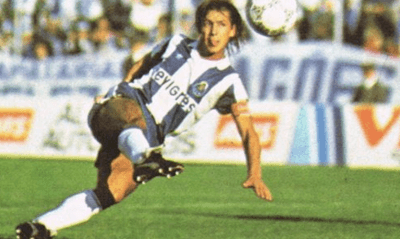
Fernando Gomes FC Porto legendary player
Porto's traditional uniform features blue and white striped shirts, blue shorts and white socks. Initially, Porto wore white shirts with red details. It was not until 1909 that the blue and white stripes were imposed, inspired by the colours of the Portuguese monarchical flag, with the intention of representing not only the city of Porto, but the whole country. Since then, the Dragões have kept these colours as a symbol of their identity and greatness.
The original FC Porto crest, created in 1910, consisted of a blue football with the initials ‘FCP’ in white. In 1922, the coat of arms of the city of Porto was incorporated into the club's emblem. This coat of arms includes a black dragon, a symbol of power, which has also given rise to the team's nickname: ‘Dragões’ (Dragons). This dragon is perched on a crown and holding a ribbon with the word ‘Invicta’, in reference to the title awarded to the city. Since then, the emblem has undergone slight modifications, but maintains these distinctive elements that reflect the identity and pride of the club and its city.
We present a retro FC Porto shirt and a vintage jacket::
FC Porto 1971-72 retro shirt : At that time the club began to have a reputation for forging new young talent that would bring them so much success in the decade that followed. Players such as Rodolfo Reis, Miglietti and Lemos wore this shirt. Under Paulo Amaral they finished fifth in the championship. We love this shirt with only three stripes with the collar so 70's style. .
FC Porto 1971-72 retro shirt
And as a bonus we include the FC Porto vintage Jacket 1983-84 that we love: It corresponds to the golden age of the club, when in the 80s it began to be the respected Club in the world that it is today. We remind you that in 1987 the Club won the Champions League no less. This jacket has the name of the club on the back. .
FC Porto 1983-84 vintage jacket
***
Both Benfica and Porto have not only contributed significantly to Portuguese football, but have also left a very interesting competitive trajectory on the international football scene, being ambassadors of Portugal's rich sporting tradition. We hope we have contributed to broaden or initiate your knowledge about the exciting Portuguese football! And don't forget to get your shirt, with which you will be able to travel with your imagination to those moments in the past of the best Portuguese football.
 Retrofootball
Retrofootball  Belgium
Belgium  France
France  Germany
Germany  Italy
Italy  Portugal
Portugal  Spain
Spain  Switzerland
Switzerland  United Kingdom
United Kingdom  other countries
other countries  Retrorugby
Retrorugby 
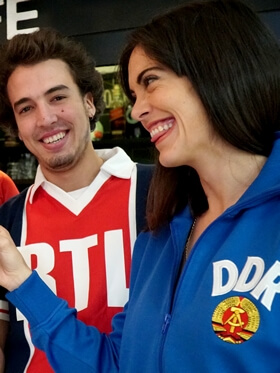
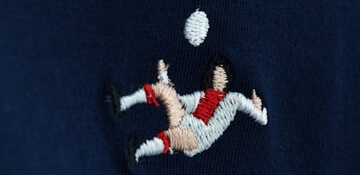
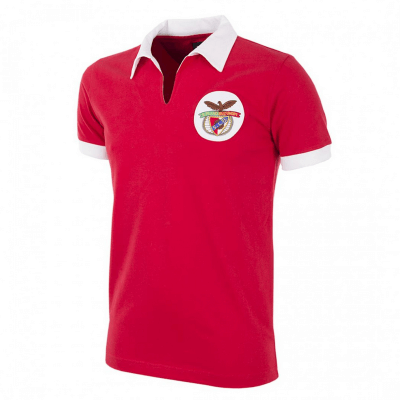
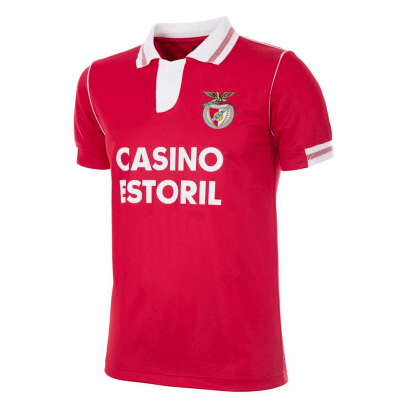
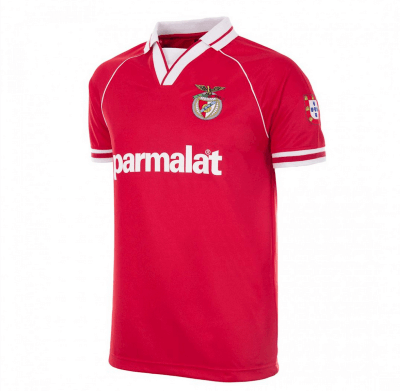
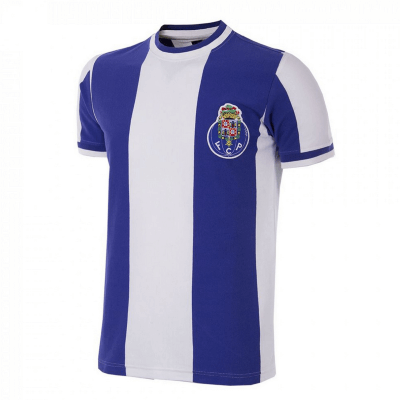
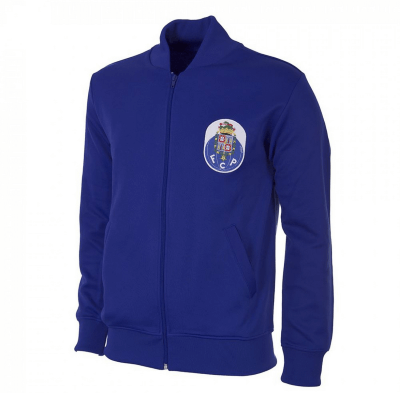




Post Comments